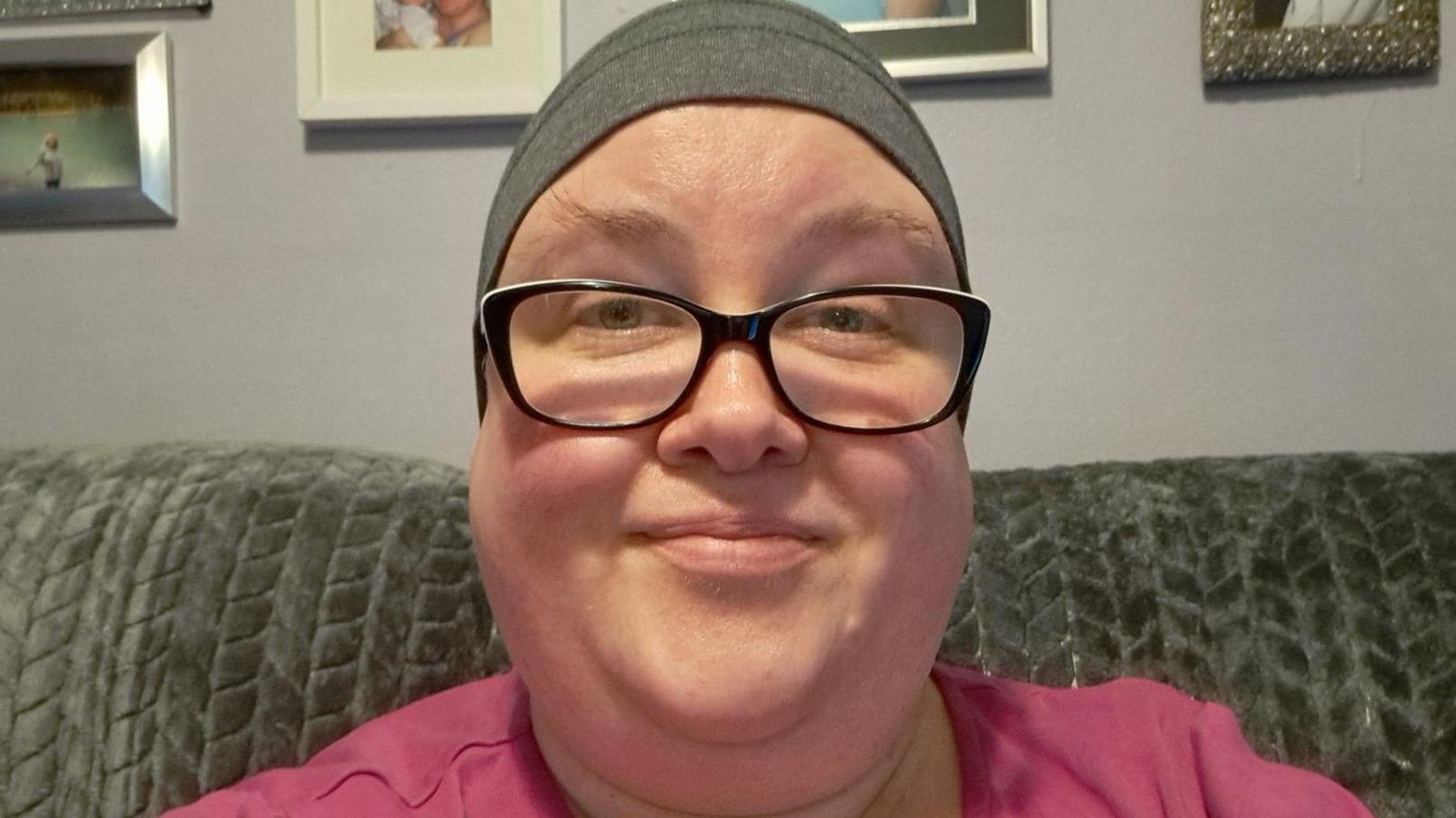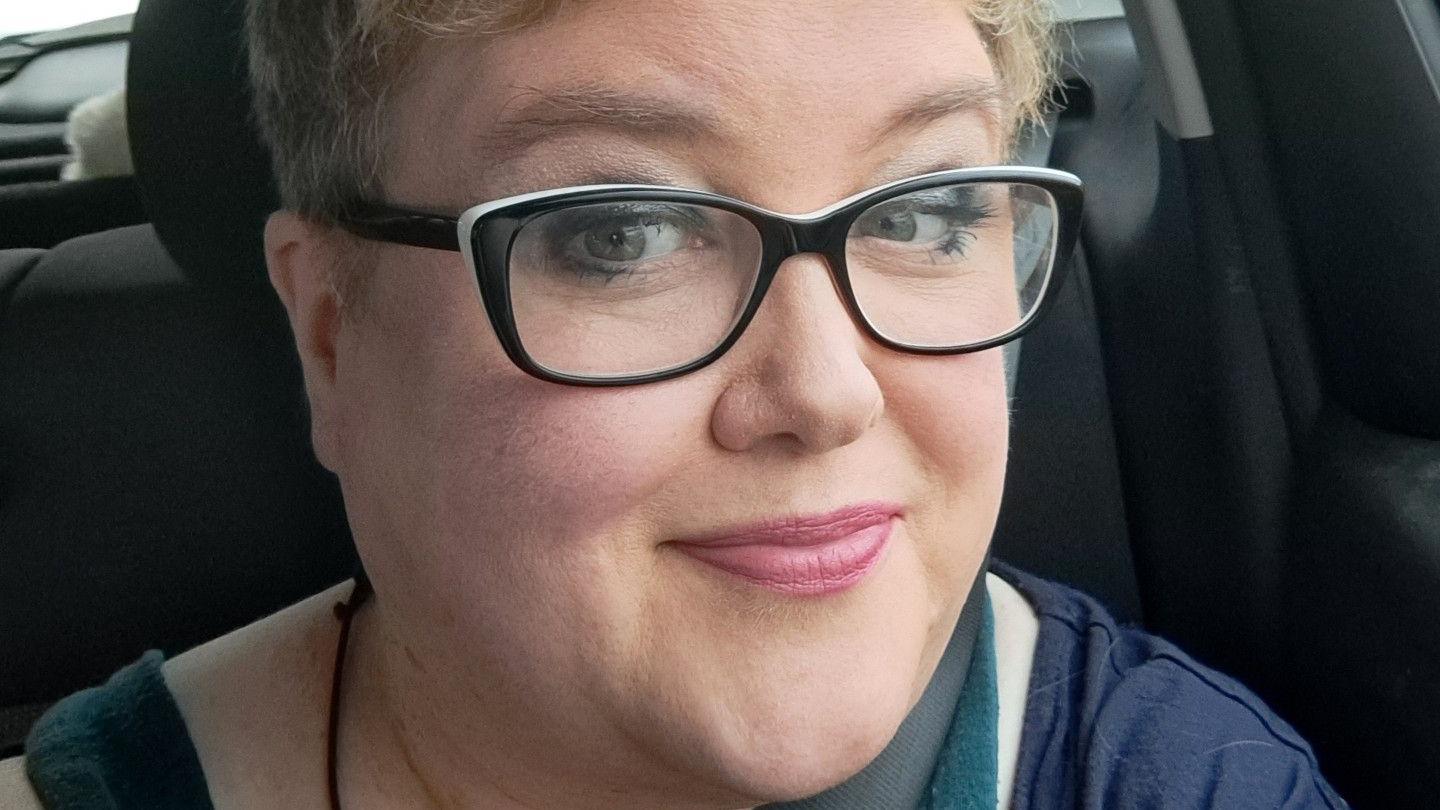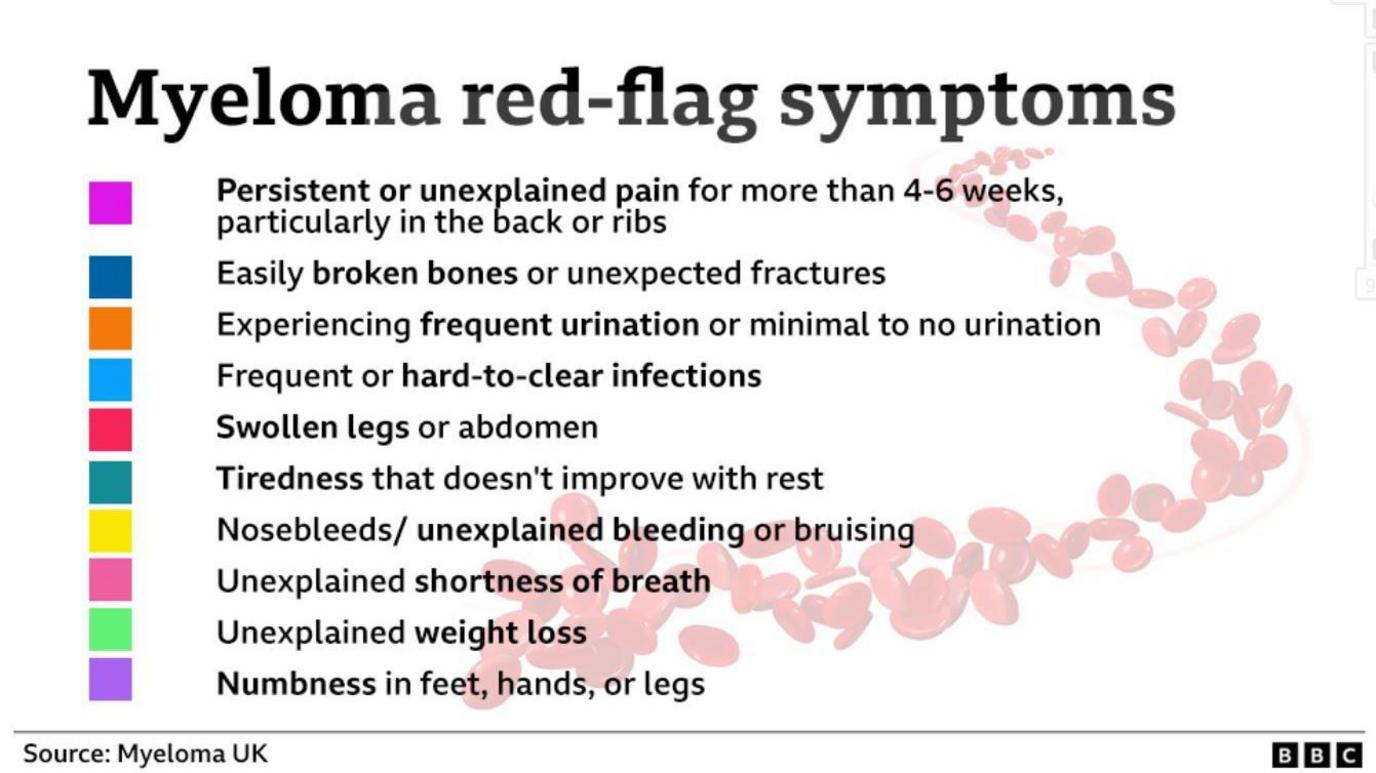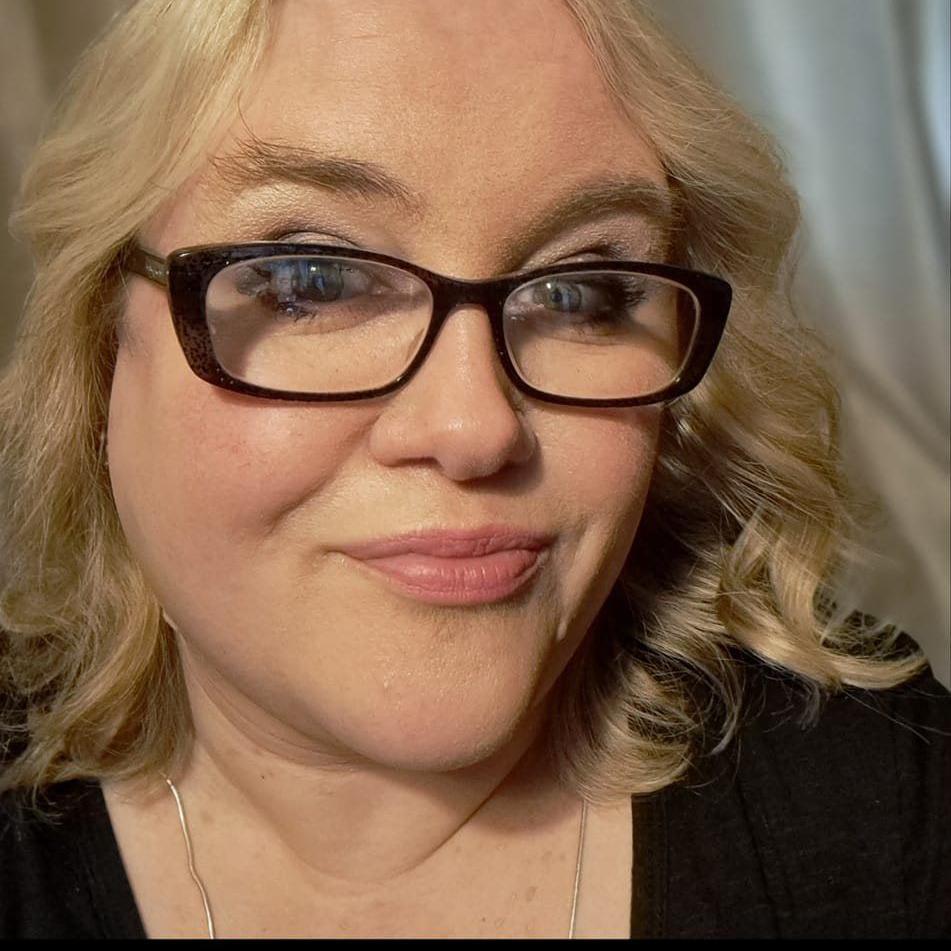Barely anyone's heard of my incurable cancer

Mia, 47, was diagnosed with myeloma in November
- Published
Mia Savage was in agony in A&E when she overheard a doctor say he suspected she had myeloma.
But she had to take out her phone to find out what it was.
In the six months since being diagnosed with the incurable bone marrow cancer, external she has realised she was not alone in her ignorance.
"Nobody knows about it, nobody's heard about it. They understand the word cancer but they don't understand myeloma," said the 47-year-old.
Mia had been going back and forth to her doctor's surgery since March 2023 complaining of pain in her hips, chest and shoulders, being in agony after walking any distance and unexpected weight loss.

Mia is one of about 5,900 people diagnosed with myeloma in the UK each year
By the time she was diagnosed in December that year she had a broken lower vertebrae, a broken shoulder and lesions up her spine and in her skull, arms and legs.
According to charity Myeloma UK, Mia's long road to diagnosis is not unique.
It said despite it being the third most common type of blood cancer, one in four people wait more than 10 months for a diagnosis.
While myeloma is incurable, it is treatable in the majority of cases, the charity said.
Treatment generally leads to periods of remission but patients inevitably relapse, requiring further treatment.
Mia is sharing her experience of living with the disease for Myeloma Awareness Week because she wants people to be able to spot the signs and know it can happen to anyone.
Although it mostly affects those over 65 it has been diagnosed in people as young as 20.
To mark the awareness week, Myeloma UK has released a symptom translator, external to help conversations with GPs.
Man almost paralysed by undiagnosed blood cancer
- Published26 June 2023
Beau the cat nurses owner after cancer diagnosis
- Published15 July 2023
I felt like I was getting electric shocks - then found out it was cancer
- Published18 June 2024
Mia, who lives in Carmarthen with her teenage daughter, said the diagnosis had been difficult to come to terms with.
"Emotionally I've been struggling," she said.
"I'm trying to put on a positive outlook, I've tried really, really hard to do that.
"I think I've cried about my cancer three times in private and that’s it."
About 5,900 people are diagnosed with myeloma in the UK each year, but Mia said she was continually surprised by people's lack of understanding about it.
"A reaction I've had from a couple of people is ‘get well soon’," she said.
"That hits you a bit because even though I have 100% sympathy for every other person going through any kind of cancer, this cancer can't be cut away."

She said people often confused myeloma with melanoma skin cancer, external.
"A common reaction is 'oh yeah, we've had melanoma in the family' and I have to say 'no, it's not skin cancer, it’s blood cancer'."
She said other reactions had been harder to take.
"I've been ghosted. I've had people that would normally talk to me who won't say anything at all to me now," she said.
But others have surprised her with their support.
"I've had people that rarely spoke to me that have been incredibly kind, incredibly thoughtful," she said.

Mia says her diagnosis has been hard to come to terms with
Mia has been travelling to Cardiff up to twice a week to take part in a medical trial.
She has also had four rounds of chemotherapy and is waiting for a stem cell transplant, external.
She said the experience of living with cancer had changed her.
"I'm an introvert but I've become more extroverted as a result of my cancer," she said.
"I feel like I need to go out and do things, I feel like I want to see people and I'm frustrated that I cannot go out and do the things that I want to do right now."
She has learnt to avoid looking too far ahead.
"I'm going to have this now for as long as I live, or until they find a cure," she said.
"I'm trying to think one remission at a time but I'm a realist, I know I’m on borrowed time until they find a cure."